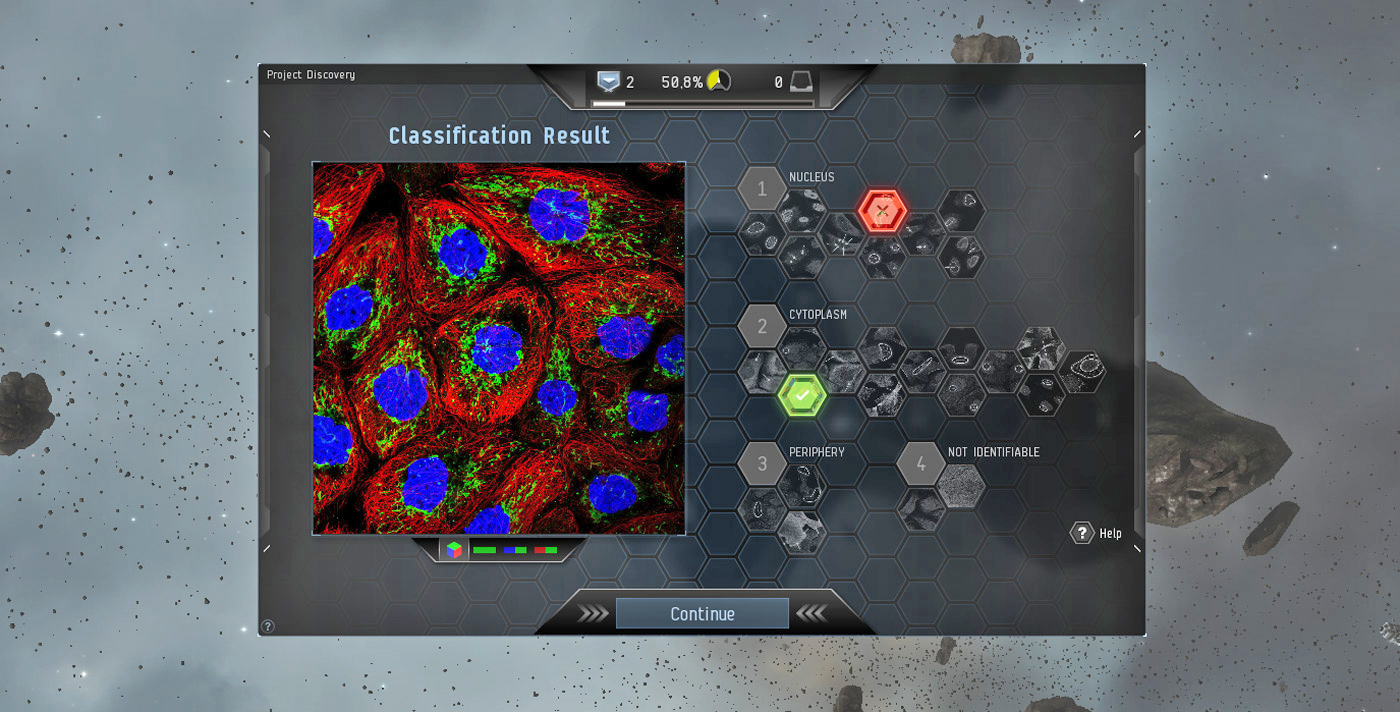Recently
I have come across an article concerning citizen science and gamification. I haven’t
been a very active computer games
player since I started my bachelor studies, however,
the idea caught my attention.
As
some of you might know, citizen science is scientific research
conducted through cooperation with non-professional researchers and
amateur scientists. It is sometimes referred as “public
participation in scientific research”. Oldest researches you
go to are from 1911, when the American
Association of Variable Star Observers
started to gather data and promote participation in program beyond
its members.
Citizen
science has applied to ornithology, oceanography, and
geography. Recently it has been
introduced into
modern technology. That’s where it gets interesting, where
scientists start to mix research with computer games.
One
of the first projects was NASA's Clickworkers, which enabled every
participant to assist in the
classification of images, which greatly
reduced time NASA needed to analyze its datasets.
The
biggest projects that involved computer users were Foldit game and
the project
Discovery that was carried out
inside a massively
multiplayer
online game called Eve online.
Foldit
was developed at the University of
Washington. Playing it, the
main objective is to fold the structures
of selected proteins
1.
In 2011 players helped decipher the crystal structure of AIDS-causing
a monkey
virus: it had
been waiting for a solution
for 15 years. Players produced a 3D
model of enzyme 10 days after the
release of it.
2.
In 2012 Scientific American reported that Foldit players redesigned
an enzyme
widely used in synthetic chemistry, increasing its activity more than
18 times.
source: science20.com
The Discovery
Project’s goal is to engage Eve online
players into mapping out where proteins are found in a body by cell
imaging. Humans have 20 – 25 k protein-coding genes and many
different cell types,
what guarantees
a lot of images to analyze. Users classify images, their result is
verified against a control
group and other people’s
results. Again, players proved that small participation from many is
worth more than years of dedication of a
single person: in just one month they
classified 8 million
cell elements, during est. 18.2 million minutes of gameplay.
It
has to be said that citizen science is surely not as accurate as
“normal” science. Less educated researchers introduce data bias,
sometimes even false results, when there is a
“prize”. However,
it is a very
interesting trend, which surely can get even more useful in the
future.
source: engadget.com
Have
you ever participated in the citizen
science project? Any conclusions?


Comments
The point is that no area of human life is an island. Science, art, people; they all influence and inform each other and can inspire new inventions and discoveries. That's super awesome.
I think that non-proffesional scientist can sometimes show new way in project. These people( players) have bright and fresh view. Moreover it seems to be economical. It activize many citizens and it is very good. I think thanks to citizen science people gain more awareness.
to solve parts of the equation eventually reaveals final result. Taking into consideration fact that there are many people
fond of solving puzzles this creates great possiblities.
It's a really smart idea for the projects that need many volunteers or many trials - if you turn anything into a game, there's a chance people would play just for the sake of entertainment.
I have never participated in such a project, but I'd love to. Do you know if there are any active projects taking place, such as the ones you've mentioned?
Here are some projects:
http://www.citizensciencealliance.org/projects.html
also, there are even sites with search engine that will match your preferences with project:
https://scistarter.com/